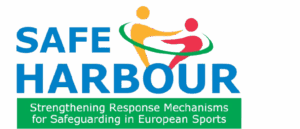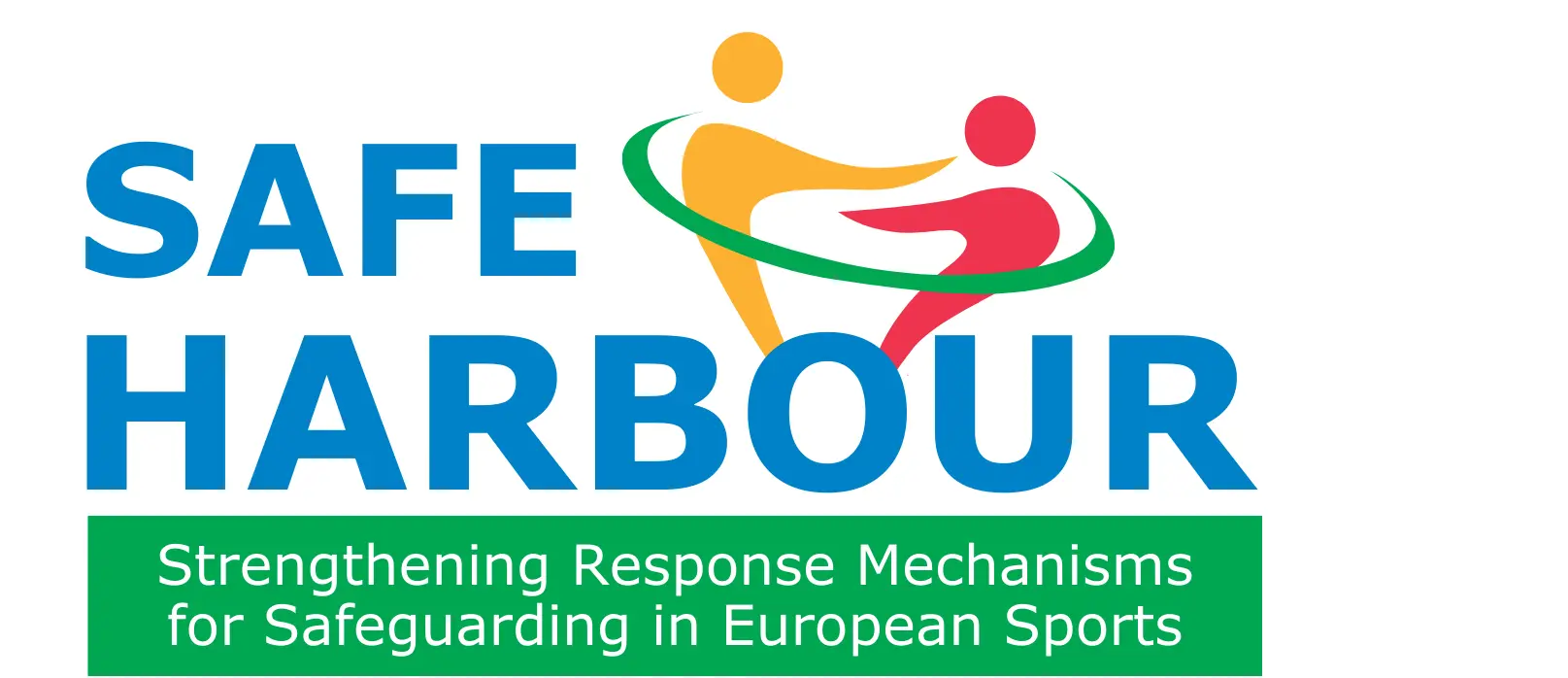
Sport is widely celebrated for its many positive impacts on individuals and society at large. However, sport also reflects the broader societal contexts in which it exists - contexts that include unequal power dynamics and forms of interpersonal violence. Increasing evidence suggests that sport, if not properly regulated, can replicate these risks. It has become increasingly evident that interpersonal violence in sport occurs across all levels, all disciplines, and in all countries.
Shared changing facilities, physical contact, intense coach-athlete relationships, the demands of travel, and hierarchical power structures are all examples of factors within sport environments that can be exploited in the absence of robust safeguarding systems. The CASES project, one of the most comprehensive European studies, reported that 75% of respondents experienced at least one form of harassment or abuse during their sporting lives. The prevalence was especially high among those involved in elite and international-level sport and among vulnerable groups. On the other hand, very few incidents were reported, with only a small proportion of those affected by interpersonal violence ever disclosing their experience or seeking support within the formal structures of sport.
The issue of safeguarding has begun to receive sustained attention at the policy level both from the European Union and from within the Olympic Movement. At the European level, Article 165 of the Treaty on the Functioning of the European Union establishes that EU action in the field of sport must protect the physical and moral integrity of athletes. This principle aims to be translated into practical priorities through the EU Work Plan for Sport 2024–2027, which identifies the creation of safe sport environments as a strategic objective, while encouraging prevention through awareness-raising, training, and formal reporting procedures. Additionally, the Council Conclusions on safeguarding children in sport (2019) and on women and equality in sport (2023) reinforced the importance of appointing safeguarding contact persons, protecting whistleblowers, and cooperating with law enforcement, when necessary. This was further reinforced by the Spanish EU Council Presidency Conference on Safe Sport (2023), the Council of Europe’s Guidelines on Sport Integrity, and the EU Gender Equality Strategy 2020–2025, all of which have firmly established safeguarding as a priority of the European Union.
The Olympic Movement has similarly embedded safeguarding at the core of its strategy and in all Olympic events. This is reflected in the International Olympic Committee (IOC)’s Olympic Agenda 2020+5, particularly Recommendation 5, which commits to strengthening safe sport worldwide. Besides, the relevance of safeguarding has been further reinforced by the IOC’s Safe Sport Action Plan 2021-2024, meanwhile, also one of the five focus areas of the IOC’s Gender Equality and Inclusion Objectives for 2021-2024 and a key priority of Olympism365. Aligned with this vision, the IOC has launched ad-hoc training programmes for Safeguarding Officers in sport, alongside tailored resources such as the Athlete Safeguarding Toolkit, which aim to support the appointment of certified Safeguarding Officers across the Olympic movement; accordingly, to guide National Olympic Committees (NOCs) and Federations in developing and implementing safeguarding policies, and in establishing athlete-centred and trauma-informed procedures.
To reinforce these efforts, the IOC has recently established a dedicated USD 10 million fund per Olympiad to strengthen both the prevention of and response to interpersonal violence in sport. Besides, this funding also serves to lay the groundwork for the creation of regional safeguarding hubs on each continent, including one in Europe. In this context, the European Olympic Committees (EOC) have fully embraced the IOC’s vision for safeguarding, a commitment further reflected in the EOC’s Strategic Agenda 2030, which sets measurable targets in the realm of safeguarding for all European NOCs for 2030.
Nonetheless, despite the growing efforts, the gaps in the practical implementation remain significant. Safeguarding is frequently addressed through narrow thematic lenses (i.e. gender-based violence, child protection, or sexual abuse) rather than as a unified framework. Besides, NOCs and Federations continue to face numerous challenges in putting safeguarding policies into practice. These include gaps in knowledge and experience, difficulties in data collection and evaluation, limited stakeholder engagement, insufficient financial and human resources, and a lack of leadership support, often because safeguarding is not yet seen as a priority. There are also concerns about whether current efforts are truly reaching all levels of sport, especially the grassroots, where safeguarding systems are least developed but arguably most needed.
Launched in January 2025 and co-funded by Erasmus+ Sport, the SAFE HARBOUR project has been designed as a practical solution to bridge the implementation gap and support NOCs and Federations in strengthening their capacity to address safeguarding concerns. At the same time, SAFE HARBOUR is designed to complement other key initiatives within the Olympic Movement, including the GUARD project, led by the Croatian Olympic Committee and focusing on national federations, and the GRASS project, coordinated by the Portuguese Olympic Committee, which targets sports clubs. Together, these projects form a holistic safeguarding ecosystem that supports protection and prevention efforts across all levels of European sport.
Structured in three phases, the SAFE HARBOUR project begins by identifying gaps, key stakeholders, and patterns of safeguarding violations. It then moves towards the co-development of a European Response framework: a shared advisory tool aligned with the IOC’s global safeguarding standards but adapted to Europe’s legal and institutional context. Finally, each NOC will translate the framework into a tailored national strategy, embedding safeguarding principles into their structures and delivering mandatory training to their leadership and affiliated federations. A Position Paper will also be produced to inform broader policy developments beyond the sport sector.
The SAFE HARBOUR project brings together a strong and diverse consortium of 27 organisations from 24 countries. Coordinated by the EOC EU Office, the consortium includes 20 National Olympic Committees (NOCs) and two International Federations, alongside expert institutions such as Thomas More University and the Asser Institute, renowned for their expertise in safeguarding, human rights, and sport law. In this spirit, SAFE HARBOUR aims to become more than a project, as it aspires to grow into a movement that brings together committed actors across Europe.
Looking ahead, the SAFE HARBOUR community aims to lay the foundation for an IOC Regional Safeguarding Hub in Europe, developed by the region, for the region. It envisions a future in which individuals affected by harassment and abuse in sport have timely access to effective, athlete-centred, and trauma-informed reporting and support mechanisms, managed by professionals equipped with the appropriate training, tools, and resources. In this future, safeguarding policies will no longer exist in isolation but will be fully embedded within the organisational and operational cultures of NOCs, Federations, and clubs. Accordingly, the sport ecosystem, from grassroots to elite, must be equipped with the knowledge, confidence, and structures needed to address safeguarding concerns independently and effectively.
Background information on the SAFE HARBOUR project
The SAFE HARBOUR project, short for “Strengthening Response Mechanisms for Safeguarding in European Sport”, is a 30-month project co-funded by the European Union through the Erasmus+ Sport Programme 2024. Coordinated by the EOC EU Office, the consortium includes Thomas More and Asser Institute as experts on safeguarding, human rights and law, 2 International Federations (International Biathlon Union and International Ice Hockey Federations), and 20 National Olympic Committees (Belgium, Bosnia and Herzegovina, Croatia, Cyprus, Czechia, Denmark, Germany, Hungary, Kosovo, Latvia, Lithuania, Luxembourg, Malta, Montenegro, Norway, Poland, Portugal, Romania, Slovakia and Slovenia). Additionally, the International Olympic Committee (IOC) is involved as an outside resource.
The project seeks to strengthen the capacity of European NOCs and Federations to address safeguarding concerns by identifying gaps, developing a European Response framework, and fostering collaboration. This framework will be adapted to national contexts, complemented by training and awareness initiatives to enhance safeguarding measures at both national and European levels. Therefore, SAFE HARBOUR aims to equip partner NOCs and Federations with the tools and confidence to implement effective safeguarding measures while establishing a robust support network for Safeguarding Officers and laying the groundwork for a future IOC Regional Safeguarding Hub.

![]()

